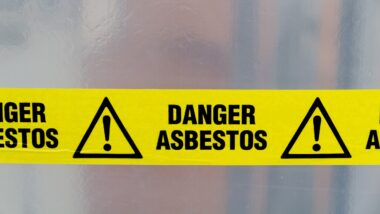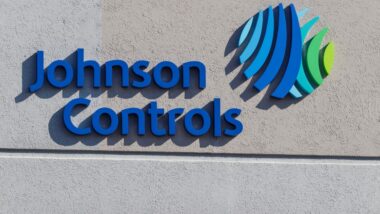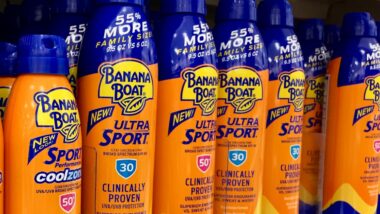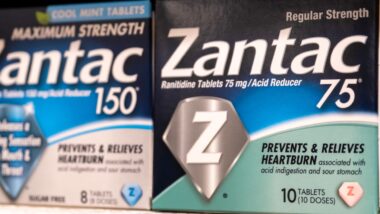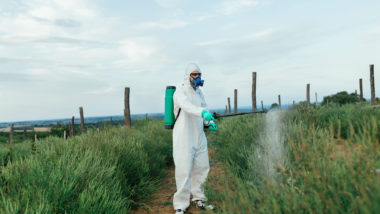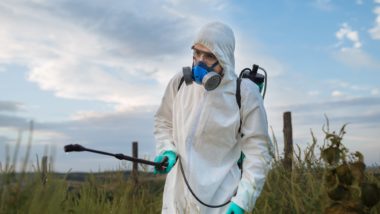Top Class Actions’s website and social media posts use affiliate links. If you make a purchase using such links, we may receive a commission, but it will not result in any additional charges to you. Please review our Affiliate Link Disclosure for more information.
An independent study commissioned by the Environmental Working Group (EWG) has found alarmingly high levels of glyphosate in hummus and other dry and canned beans. Glyphosate is a weedkilling chemical that has been linked to cancer and is the main active ingredient in Roundup Weedkiller. Roundup is commonly used in the pre-harvest preparation of chickpeas and other dry beans.
What Is Glyphosate?
Glyphosate is a herbicide usually associated with Bayer’s Roundup. According to EWG, it is the most commonly used herbicide in the U.S. While it is usually used to kill weeds, it can also play a role in the drying of beans and crops before harvest.
This drying process, known as desiccation, involves spraying the chickpeas, beans, lentils, or peas with glyphosate prior to harvest in order to dehydrate them. This process is likely to blame for the high levels of glyphosate in hummus. Due to this practice, regulations regarding the use of herbicides on these crops are sometimes different from others that don’t utilize this process. However, studies have shown that there may be safer options for desiccation.
EWG reports that the use of glyphosate as a drying agent can lead to high levels of the chemical in foods later sold to consumers. Organic farmers are legally barred from using glyphosate or other pesticides on their crops to help them grow, according to EWG.
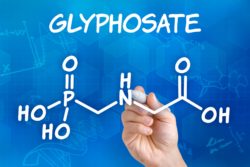
Which Brands Are Affected?
The EWG study looked for glyphosate in hummus and dry beans bought from major grocery chains and food retailers in the New York, San Fransisco, and Washington D.C. metro-areas. The stores include Costco, Giant, Target, ShopRite, Aldi, Harris Teeter, Safeway, Trader Joes, Whole Foods, and Walmart.
According to the study, store-brand products from Harris Teeter showed the highest levels of glyphosate contamination. Sabra brand hummus was reportedly a repeat offender with six out of the nine Sabra samples tested exceeding the EWG’s allowable limits for glyphosate. EWG notes that Sabra holds more than half of the U.S. market for hummus.
The study states that a total of 13 of their hummus samples showed glyphosate levels exceeding the EWG’s scientifically determined limit. These samples came from the following brands:
- Sabra Classic Hummus
- Sabra Roasted Pine Nut Hummus
- Sabra Supremely Spicy Hummus
- Whole Foods Market Original Hummus
- Whole Foods Market organic-label Original Hummus
- Cava Traditional Hummus
- Haig’s Delicacies Spicy Hummus
- Harris Teeter Fresh Foods Market Traditional Artisan Hummus
Glyphosate in Hummus and Beans
The study found that 90 percent of non-organic chickpea-based samples tested had “detectable levels of glyphosate.” Of the hummus that was tested, more than a third had glyphosate levels exceeding the EWG’s safe level for consumption. In fact, one sample had fifteen times the safe amount of glyphosate determined by the EWG. Some of the chickpeas tested even exceed the Environmental Protection Agency’s (EPA) standard which is considerably more lax.
The organic products tested fared a little better. The study found glyphosate in hummus grown organically, but at lower levels than their non-organic counterparts. All but two of the samples which researchers tested fell below the EWG’s benchmark. However, it’s worth noting that using glyphosate on organic crops is prohibited by law. It’s possible that these crops were contaminated indirectly by nearby fields.
The study also looked at 16 non-organic and three organic samples of canned beans including Great Northern beans, lentils, black, navy, and pinto beans. Sixty-eight percent of the samples tested had detectable levels of glyphosate. Four of those samples exceeded the Group’s safe amount.
The study calls for stricter guidelines on the use of glyphosate on crops and the allowable limits established by the government. Historically, the U.S. government has shown an aversion to restricting the use of glyphosate. For instance, the EPA made an emergency exemption for glyphosate in 1997 that has never been adjusted despite growing evidence that glyphosate should be considered a carcinogen.
Join a Roundup Weed Killer Cancer Class Action Lawsuit Investigation
You may qualify for this Roundup cancer lawsuit investigation if you were diagnosed with one of these conditions after using Roundup:
- Non-Hodgkin’s lymphoma
- B-cell lymphoma
- T-cell lymphoma
- Chronic lymphocytic leukemia (CLL)
- Hairy cell lymphoma
See if you qualify by filling out the form on this page for a case evaluation with an experienced Roundup lawsuit attorney.
This article is not legal advice. It is presented
for informational purposes only.
ATTORNEY ADVERTISING
Top Class Actions is a Proud Member of the American Bar Association
LEGAL INFORMATION IS NOT LEGAL ADVICE
Top Class Actions Legal Statement
©2008 – 2024 Top Class Actions® LLC
Various Trademarks held by their respective owners
This website is not intended for viewing or usage by European Union citizens.
Get Help – It’s Free
Join a Roundup Weed Killer Cancer Class Action Lawsuit Investigation
For the most up-to-date information on this case, click here.


